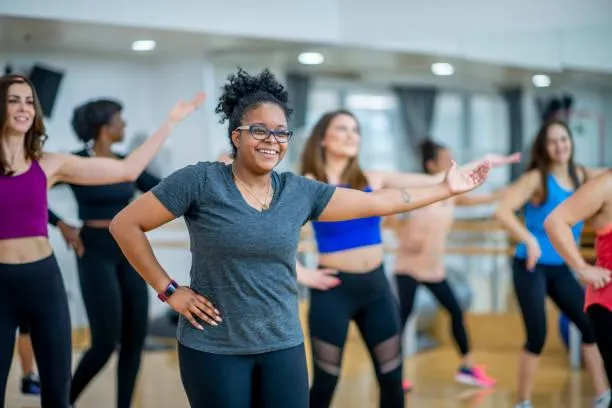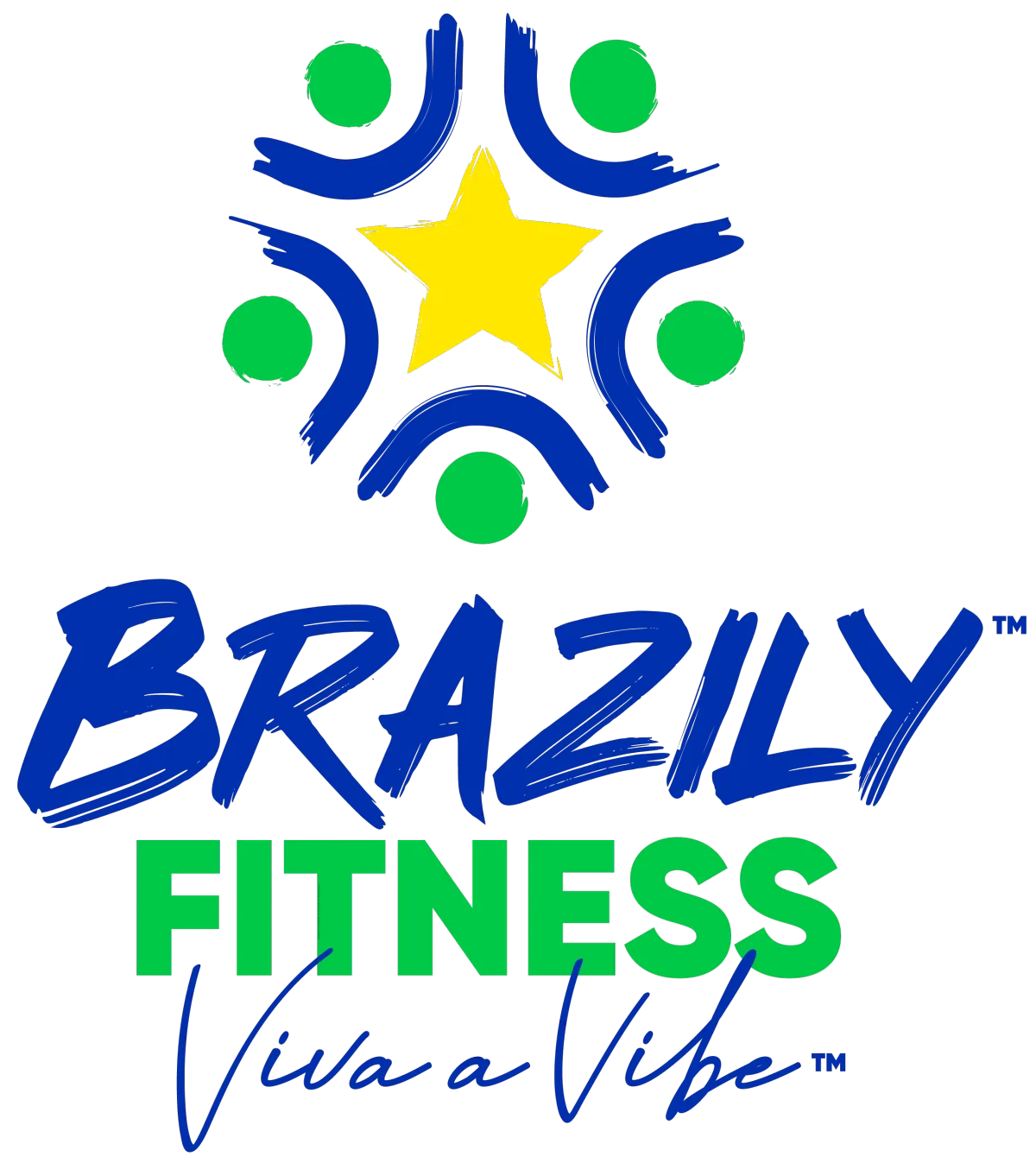
Dance Your Way to Mental Wellness: The Emotional Benefits of Movement
Dance Your Way to Mental Wellness: The Emotional Benefits of Movement
Dance therapy, also known as emotional healing through dance, is gaining recognition as a powerful tool for improving mental health. Beyond its physical aspects, dance offers a myriad of emotional benefits that contribute to overall well-being. Whether through organized dance programs or personal practice, incorporating dance into your life can have a positive impact on your emotional well-being and mental health.

Key Takeaways:
· Dance therapy is a valuable alternative therapy for various pathologies and medical disorders.
· Dance interventions have shown positive effects on children with autism spectrum disorders and emotional and physical limitations.
· Dance improves self-esteem, promotes social interaction, and alleviates symptoms of depression and anxiety.
· Engaging in dance as physical activity improves cardiovascular fitness, musculoskeletal strength, and contributes to disease prevention.
· Dance enhances mood, releases chemicals in the brain that boost well-being, and potentially prevents dementia through memory enhancement.
The Physiological Benefits of Dance
Engaging in dance as a form of physical activity offers multiple physiological benefits. It serves as an excellent way to incorporate physical activity into your routine, contributing to cardiovascular fitness, musculoskeletal strength, and overall disease prevention. Dance is a fun and enjoyable way to maintain a healthy body weight and improve your overall quality of life. Making dance a part of your daily routine can help you meet the World Health Organization's recommendation of at least 60 minutes of moderate-to-vigorous exercise for children and adolescents, supporting healthy growth and development.
Physiological Benefits of Dance:
1. Improved cardiovascular fitness: Dancing involves sustained movement, which helps strengthen the heart and lungs, improving overall cardiovascular health.
2. Enhanced musculoskeletal strength: The various movements and positions in dance help develop and tone muscles, improving strength and stability.
3. Contribution to disease prevention: Regular physical activity, such as dancing, can help reduce the risk of chronic diseases, including cardiovascular disease, diabetes, and certain types of cancer.
4. Maintenance of a healthy body weight: Dancing is a fun and effective way to burn calories, aiding in weight management and promoting a healthy body composition.
Dance not only engages your body but also provides long-term benefits for your overall well-being. By incorporating dance into your routine, you can enjoy the physiological advantages it offers and contribute to a healthier, more active lifestyle.
The Psychological Benefits of Dance
Dance isn't just about moving to the music—it's a powerful tool that offers substantial psychological benefits, enhancing overall mental well-being. Engaging in dance has been linked to improvements in self-esteem, confidence, social interaction, and alleviation of symptoms related to depression and anxiety. Scientifically proven to trigger the release of mood-boosting chemicals in the brain, dance provides a welcome reprieve from negative thoughts.
A pivotal psychological boon of dance lies in its ability to bolster self-esteem. By mastering intricate movements and expressing creativity, dancers often experience a surge in feelings of accomplishment and self-worth. This newfound confidence can profoundly impact mental health, fostering a more positive outlook on life.
Furthermore, dance acts as a conduit for social connection. Whether swaying with a partner or joining group dance sessions, the communal aspect of dance nurtures bonds and cultivates supportive relationships. This social engagement is instrumental in fostering a sense of belonging, warding off feelings of isolation, and combating loneliness.
Beyond the social realm, dance is a potent mood enhancer. The physical exertion and rhythmic motions inherent in dance trigger the release of endorphins, renowned as the brain's "feel-good" chemicals. This natural high translates into elevated moods, reduced stress levels, and an overall sense of joy and well-being.
Moreover, dance serves as a therapeutic ally in managing symptoms of depression and anxiety. Through dance, individuals can channel their emotions into physical expression, offering a healthy outlet for stress and tension. The amalgamation of physical activity, emotional release, and social interaction in dance can significantly mitigate the impact of these mental health conditions.
Delving deeper into its wonders, dance is also a mental workout. Learning new dance styles, mastering routines, and navigating choreography demands cognitive engagement and memory retention. This mental stimulation not only enhances memory but also has the potential to stave off cognitive decline and age-related memory loss, as suggested by some studies.
In essence, dance is a holistic journey towards mental well-being, offering a tapestry of benefits that transcend the dance floor. Whether you're twirling to salsa beats or grooving to hip-hop rhythms, dance holds the key to unlocking a world of psychological wellness and fulfillment.
The Psychological Benefits of Dance at a Glance:
· Improved self-esteem and confidence
· Promotes social interaction and connection
· Enhanced mood and happiness
· Alleviates symptoms of depression and anxiety
· Potential memory enhancement and cognitive benefits
Incorporating dance into one's life can be a valuable tool in enhancing psychological well-being. Whether through structured dance classes, social dancing, or personal practice, dance offers numerous benefits that contribute to improved mental health and overall quality of life.
Incorporating Dance into Your Life
If you're interested in incorporating dance into your life, there are several options to explore. Whether you want to dance alone or with others, taking dance classes or learning routines, there is a dance style and approach that suits your preferences and goals.
Dancing Alone or with Others
Dancing alone can be a liberating and self-expressive experience. It allows you to move freely without any self-consciousness or judgment. You can let go of inhibitions and explore various dance movements that make you feel good. Dancing alone also provides an opportunity for self-reflection, stress relief, and personal growth.
On the other hand, dancing with others can be a fun and social experience. It allows you to connect with like-minded individuals who share your passion for dance. Whether it's joining a dance group, participating in social dance events, or even dancing with friends or family at home, dancing with others can bring a sense of joy, camaraderie, and community.
Taking Dance Classes
If you're looking for a more structured approach to dance, taking dance classes can be a great option. Dance classes provide professional guidance, instruction, and a progressive learning environment. Whether you're a beginner or have some dance experience, there's a class suitable for your skill level and interests.
With dance classes, you'll have the opportunity to learn specific dance styles, techniques, and choreography. You'll also benefit from the expertise of experienced instructors who can offer personalized feedback and guidance. Dance classes not only enhance your dance skills but also offer a chance to meet fellow dance enthusiasts and build a supportive dance community.
Learning Routines
Learning dance routines can be a fulfilling and rewarding way to incorporate dance into your life. Whether it's learning routines from online tutorials, dance DVDs, or attending workshops, mastering dance routines allows you to challenge yourself and improve your dance skills.
By learning routines, you'll develop coordination, rhythm, and musicality. It's a great way to keep your mind sharp and engage in a creative outlet. Practicing dance routines regularly can also help you build muscle memory, allowing you to execute moves with confidence and fluidity.
Brazilly Fitness offers a unique approach to integrating dance into your life, focusing on the emotional and mental benefits of Brazilian dance. Our programs are designed to be inclusive and accessible, providing a supportive environment where everyone can experience the joy and therapeutic benefits of dance. Whether you're looking to improve your mental wellness, build self-esteem, or simply find a fun way to exercise, Brazilly Fitness has something for everyone. Our classes cater to all levels, from beginners to experienced dancers, and our instructors are trained to help you get the most out of each session. By joining our community, you'll not only enjoy the physical benefits of dance but also connect with a vibrant community that shares your passion for movement and wellness.
Preventing Injuries
When engaging in dance, it's essential to prioritize injury prevention. Like any physical activity, dance can put strain on your body if not done correctly. To minimize the risk of injuries, ensure that you warm up properly before dancing, stretch to improve flexibility, and gradually increase the intensity of your dance sessions.
It's also crucial to listen to your body and take breaks when needed. Pushing yourself too hard can lead to overuse injuries or muscle strains. If you're unsure about certain movements or techniques, seek guidance from dance professionals or instructors who can teach you proper form and offer injury prevention tips.
Remember, self-consciousness should never hinder your enjoyment of dance. Regardless of natural talent or skill level, dance is a form of self-expression and personal growth. Embrace the joy of movement and embrace the transformative power of dance in your life.
Conclusion
Dance is not just a form of physical activity; it is a powerful tool for enhancing our emotional well-being. Through the movement of dance, we can experience a multitude of benefits that contribute to our overall mental wellness.
One of the key benefits of dance is its ability to improve self-esteem. As we challenge ourselves to learn new moves and express ourselves through dance, we gain a sense of accomplishment and confidence in our abilities.
In addition, dance provides a platform for social interaction, fostering connections and friendships. It allows us to break free from the constraints of self-consciousness and embrace the joy of moving together with others.
Furthermore, dance has been shown to have a positive impact on our mood, offering relief from symptoms of depression and anxiety. It has the power to uplift our spirits and provide an outlet for emotional release.
Lastly, engaging in dance can sharpen our memory and cognitive function. Learning new dance routines and steps challenges our brain, stimulating neural pathways and potentially warding off cognitive decline.
Incorporating dance into our lives, whether through dance classes or personal practice, can significantly improve our emotional well-being and overall mental health. So dance your way to mental wellness and experience the transformative power of movement.
At Brazilly Fitness, we invite you to explore the emotional benefits of movement in a supportive and vibrant environment. Our community is a place where everyone belongs, from beginners to seasoned dancers, and where each step on the dance floor brings us closer to our collective and individual wellness goals. Join us to discover how dance can be your ally in the journey toward mental wellness, offering a joyful and empowering path to a happier, healthier you. Visit Brazilly Fitness to learn more about our programs and how you can dance your way to emotional and mental wellbeing.
Brazily Fitness Blog

Dance Your Way to Mental Wellness: The Emotional Benefits of Movement
Dance Your Way to Mental Wellness: The Emotional Benefits of Movement
Dance therapy, also known as emotional healing through dance, is gaining recognition as a powerful tool for improving mental health. Beyond its physical aspects, dance offers a myriad of emotional benefits that contribute to overall well-being. Whether through organized dance programs or personal practice, incorporating dance into your life can have a positive impact on your emotional well-being and mental health.

Key Takeaways:
· Dance therapy is a valuable alternative therapy for various pathologies and medical disorders.
· Dance interventions have shown positive effects on children with autism spectrum disorders and emotional and physical limitations.
· Dance improves self-esteem, promotes social interaction, and alleviates symptoms of depression and anxiety.
· Engaging in dance as physical activity improves cardiovascular fitness, musculoskeletal strength, and contributes to disease prevention.
· Dance enhances mood, releases chemicals in the brain that boost well-being, and potentially prevents dementia through memory enhancement.
The Physiological Benefits of Dance
Engaging in dance as a form of physical activity offers multiple physiological benefits. It serves as an excellent way to incorporate physical activity into your routine, contributing to cardiovascular fitness, musculoskeletal strength, and overall disease prevention. Dance is a fun and enjoyable way to maintain a healthy body weight and improve your overall quality of life. Making dance a part of your daily routine can help you meet the World Health Organization's recommendation of at least 60 minutes of moderate-to-vigorous exercise for children and adolescents, supporting healthy growth and development.
Physiological Benefits of Dance:
1. Improved cardiovascular fitness: Dancing involves sustained movement, which helps strengthen the heart and lungs, improving overall cardiovascular health.
2. Enhanced musculoskeletal strength: The various movements and positions in dance help develop and tone muscles, improving strength and stability.
3. Contribution to disease prevention: Regular physical activity, such as dancing, can help reduce the risk of chronic diseases, including cardiovascular disease, diabetes, and certain types of cancer.
4. Maintenance of a healthy body weight: Dancing is a fun and effective way to burn calories, aiding in weight management and promoting a healthy body composition.
Dance not only engages your body but also provides long-term benefits for your overall well-being. By incorporating dance into your routine, you can enjoy the physiological advantages it offers and contribute to a healthier, more active lifestyle.
The Psychological Benefits of Dance
Dance isn't just about moving to the music—it's a powerful tool that offers substantial psychological benefits, enhancing overall mental well-being. Engaging in dance has been linked to improvements in self-esteem, confidence, social interaction, and alleviation of symptoms related to depression and anxiety. Scientifically proven to trigger the release of mood-boosting chemicals in the brain, dance provides a welcome reprieve from negative thoughts.
A pivotal psychological boon of dance lies in its ability to bolster self-esteem. By mastering intricate movements and expressing creativity, dancers often experience a surge in feelings of accomplishment and self-worth. This newfound confidence can profoundly impact mental health, fostering a more positive outlook on life.
Furthermore, dance acts as a conduit for social connection. Whether swaying with a partner or joining group dance sessions, the communal aspect of dance nurtures bonds and cultivates supportive relationships. This social engagement is instrumental in fostering a sense of belonging, warding off feelings of isolation, and combating loneliness.
Beyond the social realm, dance is a potent mood enhancer. The physical exertion and rhythmic motions inherent in dance trigger the release of endorphins, renowned as the brain's "feel-good" chemicals. This natural high translates into elevated moods, reduced stress levels, and an overall sense of joy and well-being.
Moreover, dance serves as a therapeutic ally in managing symptoms of depression and anxiety. Through dance, individuals can channel their emotions into physical expression, offering a healthy outlet for stress and tension. The amalgamation of physical activity, emotional release, and social interaction in dance can significantly mitigate the impact of these mental health conditions.
Delving deeper into its wonders, dance is also a mental workout. Learning new dance styles, mastering routines, and navigating choreography demands cognitive engagement and memory retention. This mental stimulation not only enhances memory but also has the potential to stave off cognitive decline and age-related memory loss, as suggested by some studies.
In essence, dance is a holistic journey towards mental well-being, offering a tapestry of benefits that transcend the dance floor. Whether you're twirling to salsa beats or grooving to hip-hop rhythms, dance holds the key to unlocking a world of psychological wellness and fulfillment.
The Psychological Benefits of Dance at a Glance:
· Improved self-esteem and confidence
· Promotes social interaction and connection
· Enhanced mood and happiness
· Alleviates symptoms of depression and anxiety
· Potential memory enhancement and cognitive benefits
Incorporating dance into one's life can be a valuable tool in enhancing psychological well-being. Whether through structured dance classes, social dancing, or personal practice, dance offers numerous benefits that contribute to improved mental health and overall quality of life.
Incorporating Dance into Your Life
If you're interested in incorporating dance into your life, there are several options to explore. Whether you want to dance alone or with others, taking dance classes or learning routines, there is a dance style and approach that suits your preferences and goals.
Dancing Alone or with Others
Dancing alone can be a liberating and self-expressive experience. It allows you to move freely without any self-consciousness or judgment. You can let go of inhibitions and explore various dance movements that make you feel good. Dancing alone also provides an opportunity for self-reflection, stress relief, and personal growth.
On the other hand, dancing with others can be a fun and social experience. It allows you to connect with like-minded individuals who share your passion for dance. Whether it's joining a dance group, participating in social dance events, or even dancing with friends or family at home, dancing with others can bring a sense of joy, camaraderie, and community.
Taking Dance Classes
If you're looking for a more structured approach to dance, taking dance classes can be a great option. Dance classes provide professional guidance, instruction, and a progressive learning environment. Whether you're a beginner or have some dance experience, there's a class suitable for your skill level and interests.
With dance classes, you'll have the opportunity to learn specific dance styles, techniques, and choreography. You'll also benefit from the expertise of experienced instructors who can offer personalized feedback and guidance. Dance classes not only enhance your dance skills but also offer a chance to meet fellow dance enthusiasts and build a supportive dance community.
Learning Routines
Learning dance routines can be a fulfilling and rewarding way to incorporate dance into your life. Whether it's learning routines from online tutorials, dance DVDs, or attending workshops, mastering dance routines allows you to challenge yourself and improve your dance skills.
By learning routines, you'll develop coordination, rhythm, and musicality. It's a great way to keep your mind sharp and engage in a creative outlet. Practicing dance routines regularly can also help you build muscle memory, allowing you to execute moves with confidence and fluidity.
Brazilly Fitness offers a unique approach to integrating dance into your life, focusing on the emotional and mental benefits of Brazilian dance. Our programs are designed to be inclusive and accessible, providing a supportive environment where everyone can experience the joy and therapeutic benefits of dance. Whether you're looking to improve your mental wellness, build self-esteem, or simply find a fun way to exercise, Brazilly Fitness has something for everyone. Our classes cater to all levels, from beginners to experienced dancers, and our instructors are trained to help you get the most out of each session. By joining our community, you'll not only enjoy the physical benefits of dance but also connect with a vibrant community that shares your passion for movement and wellness.
Preventing Injuries
When engaging in dance, it's essential to prioritize injury prevention. Like any physical activity, dance can put strain on your body if not done correctly. To minimize the risk of injuries, ensure that you warm up properly before dancing, stretch to improve flexibility, and gradually increase the intensity of your dance sessions.
It's also crucial to listen to your body and take breaks when needed. Pushing yourself too hard can lead to overuse injuries or muscle strains. If you're unsure about certain movements or techniques, seek guidance from dance professionals or instructors who can teach you proper form and offer injury prevention tips.
Remember, self-consciousness should never hinder your enjoyment of dance. Regardless of natural talent or skill level, dance is a form of self-expression and personal growth. Embrace the joy of movement and embrace the transformative power of dance in your life.
Conclusion
Dance is not just a form of physical activity; it is a powerful tool for enhancing our emotional well-being. Through the movement of dance, we can experience a multitude of benefits that contribute to our overall mental wellness.
One of the key benefits of dance is its ability to improve self-esteem. As we challenge ourselves to learn new moves and express ourselves through dance, we gain a sense of accomplishment and confidence in our abilities.
In addition, dance provides a platform for social interaction, fostering connections and friendships. It allows us to break free from the constraints of self-consciousness and embrace the joy of moving together with others.
Furthermore, dance has been shown to have a positive impact on our mood, offering relief from symptoms of depression and anxiety. It has the power to uplift our spirits and provide an outlet for emotional release.
Lastly, engaging in dance can sharpen our memory and cognitive function. Learning new dance routines and steps challenges our brain, stimulating neural pathways and potentially warding off cognitive decline.
Incorporating dance into our lives, whether through dance classes or personal practice, can significantly improve our emotional well-being and overall mental health. So dance your way to mental wellness and experience the transformative power of movement.
At Brazilly Fitness, we invite you to explore the emotional benefits of movement in a supportive and vibrant environment. Our community is a place where everyone belongs, from beginners to seasoned dancers, and where each step on the dance floor brings us closer to our collective and individual wellness goals. Join us to discover how dance can be your ally in the journey toward mental wellness, offering a joyful and empowering path to a happier, healthier you. Visit Brazilly Fitness to learn more about our programs and how you can dance your way to emotional and mental wellbeing.






